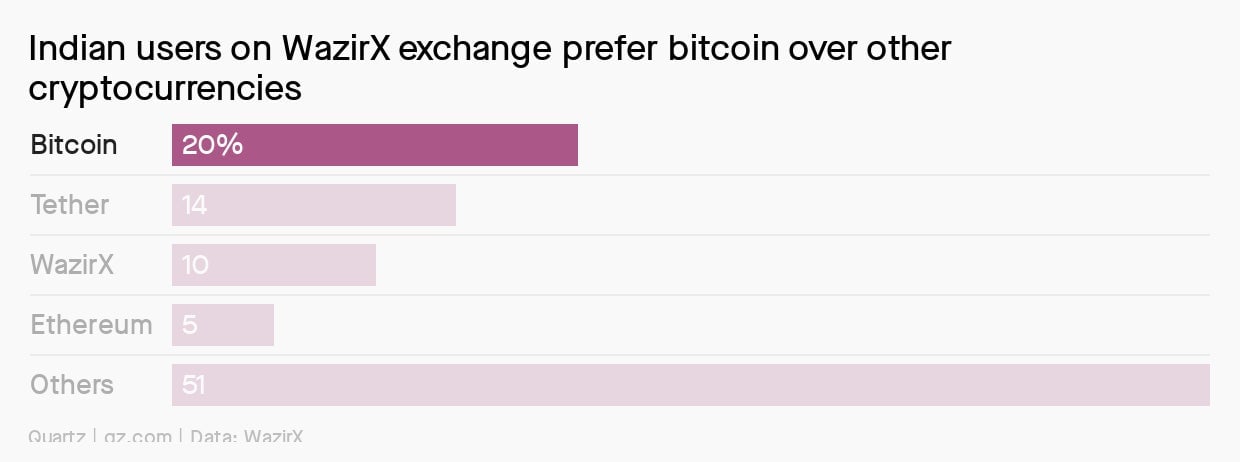US tariffs broke rules, India’s bitcoin trading, political birdwatching
Good morning, Quartz readers!

Good morning, Quartz readers!
Here’s what you need to know
The WTO said Trump’s China tariffs broke trade rules. The World Trade Organization faulted the US—which imposed tariffs on more than $200 billion of Chinese goods two years ago—for only targeting China and exceeding its own maximum rates.
Toyota won’t expand in India because taxes are too high. The Japanese automaker said it will continue operations in the country but has no plans for growth due to prohibitive levies on cars and motorbikes that make it difficult to scale.
The Asian Development Bank forecast a recession in 2020. The body’s latest update predicts a contraction of 0.7% in the region, the worst downturn since the 1960s. While China has already returned to growth, developing economies are expected to continue to suffer as a result of the pandemic.
Novavax plans to double its Covid-19 vaccine production in India. The US drugmaker said it now hopes to make 2 billion doses annually as part of its agreement with Serum Institute of India. Meanwhile, a top Chinese scientist said a vaccine will be ready in the country by November, and the United Arab Emirates approved Sinopham’s vaccine for emergency use.
Wall Street shrugged off Apple’s latest product launch. US stock market indexes briefly dipped and Apple’s stock stayed flat following the iPhone maker’s underwhelming “Time Flies” event featuring health-focused updates to the Apple Watch, new iPad, and a new Apple One subscription bundle.
Japan gets a new prime minister. Yoshihide Suga, Shinzo Abe’s chief cabinet secretary, likely has the legislative votes he needs to succeed his former boss.
Checking up on global health
💉 Hoarding vaccines will extend the pandemic. The Bill and Melinda Gates Foundation warned rich countries that buying up all the viruses and leaving poorer countries without is counterproductive.
📉 Covid-19 undid 25 years of global health progress in 25 weeks. Poverty, immunization rates, education, gender equality, clean water access, and more will take years to get back to pre-pandemic levels.
👀 And another potential epidemic needs serious attention. There’s a brewing mental health crisis for South Asian immigrants in the West.
Charting bitcoin in India
After a ban on cryptocurrencies was revoked in March, bitcoin accounted for 20% of the total traded volumes on WazirX, one of the popular cryptocurrency exchanges in India. Over the last six months, bitcoins worth $184 million were traded on the platform.
Not only is it the most stable, bitcoin is one of the base currencies for buying altcoins if a user doesn’t want to use sovereign-backed money to trade. Endorsements from Wall Street veterans haven’t hurt the currency’s cachet either.

But Tether may be the other one to watch. Read more here.
ARE COMMERCIAL BREAKS COMING TO NETFLIX?
Netflix doesn’t have commercials—and it won’t any time soon. But that doesn’t mean it won’t embrace advertisers.
The streaming service had 193 million global subscribers as of June and is likely to surpass 200 million by the end of the year. For now, the only substantial way it monetizes that massive audience is from subscriptions. But many observers—including marketers who want to reach those subscribers—believe the company needs to find other means through which it can capitalize on its legions of binge-watchers in the event subscriptions stop growing.
Read more about the ways Netflix is already working with advertisers, and what this means for the future of the TV ad, in this week’s field guide. If you’re not already a member, sign up to become one today.
Build a sustainable productivity routine
Hit reset on your productivity. Join us on Sept. 17 from 11am–12pm ET for our free virtual workshop on how to build a sustainable productivity routine. For this workshop, we’ve assembled a group of experts to share practical tips and advice on how to overcome distractions and set yourself up for efficiency.
Obsession interlude: How we spend

The biggest question facing retailers of all stripes is whether the changes in global purchasing habits forced by the pandemic will result in a permanent disruption of how we shop and spend.
Almost every consumer-facing company—from luxury retailers to restaurants to entertainment venues—had to adjust to the lockdowns and quarantines. Some moved online, others reduced capacity, or just shut their doors and hoped to survive long enough for customers to return.
There’s evidence that some shoppers will, in fact, return to stores. That’s been the pattern in China, for example. But the post-pandemic world has both fewer stores, due to a wave of bankruptcies, and more opportunities to buy online. Amazon is a clear success story, and other retailers are more focused on e-commerce in anticipation of a permanent shift. Whether shoppers opt to stay online will dictate much of the future of retailing.
Keep up with our How We Spend obsession here.
Surprising discoveries
The US wildfires are producing more carbon dioxide than its power plants… Fire emissions in Oregon have also surpassed annual emissions from transportation.
…and smoke from the fires has reached Europe. Satellite imagery shows clouds have spread as far as the Netherlands and Germany.
Testy China-Taiwan relations are not for the birds. A bird conservation NGO kicked out a Taiwan group because it supports independence from China.
Asbestos, Quebec is changing its name. The shortlist of new monikers includes Jeffrey and Trois-Lacs.
Reese’s may be making a peanut butter cup with potato chips. Parent company Hershey has yet to confirm a product image circulating on social media.
Our best wishes for a productive day. Please send any news, comments, new town names, and weird-but-oddly-awesome-sounding candy to [email protected]. Get the most out of Quartz by downloading our iOS app and becoming a member. Today’s Daily Brief was brought to you by Oliver Staley, Walter Frick, Prathamesh Mulye, Liz Webber, and Susan Howson.